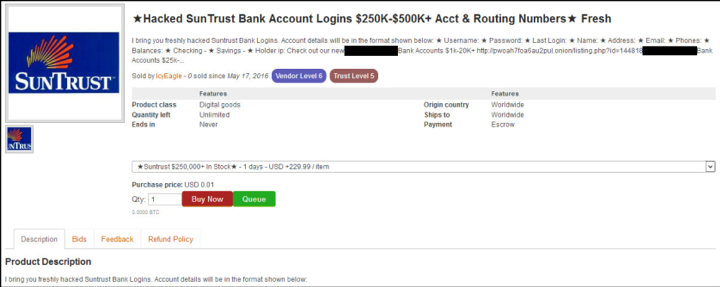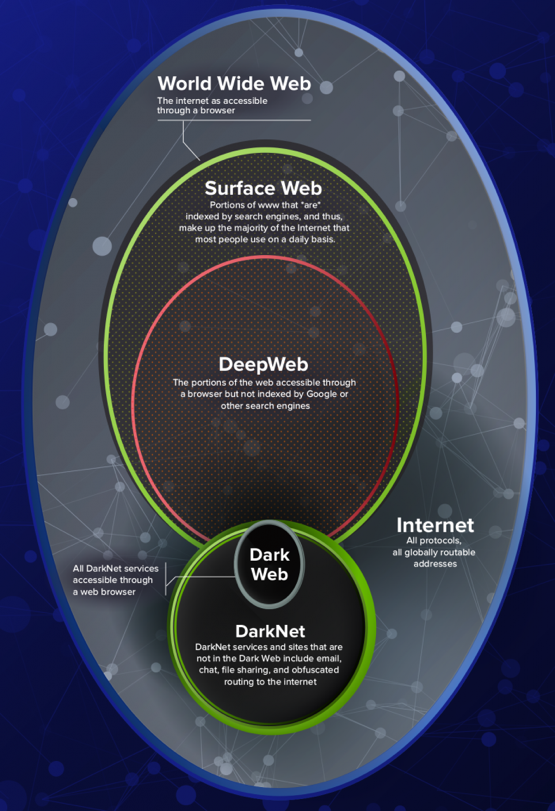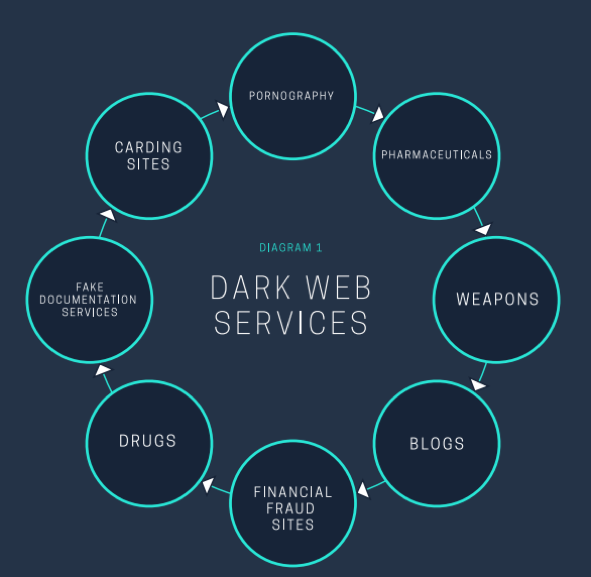Have you ever had your identity stolen? If you haven’t, consider yourself lucky. On a daily basis we hear reports of someone stealing a credit card, hijacking bank accounts, or creating false online profiles. One thing is clear: Cyber criminals are constantly trying to steal our personal information…and this information often ends up on a place called the Dark Web.
So what exactly is the Dark Web?
The dark web is a portion of the internet that can only be accessed by using certain browsers and software.
NBC10 Boston Investigators sat down with Andrei Barysevich, the director of advanced collection for Recorded Future, a Somerville-based cyber intelligence company. “You can pretty much find anything,” Barysevich said. “Stolen identities, credit card numbers, compromised data or weapons and drugs.”
In the past two years, Barysevich has gone from a team of one to a team of several dozen cyber intelligence analysts, combing through more than 2 million Dark Web sources per week. His employees, typically fluent in several foreign languages, act like “flies on the wall” in Dark Web online forums, Barysevich said, attempting to gather information about what’s being bought and sold.
On one disturbing site, Barysevich showed NBC10 Boston Investigator Ryan Kath how easy it is to buy the Social Security number of almost anyone in the United States. Using one of Recorded Future’s accounts to pay the $3 charge, Kath plugged in his name. After a search that only took a few seconds, Kath’s personal information appeared on the screen. Barysevich said everyone should assume their information was at one point stolen and is available on the Dark Web.
Christopher Ahlberg, CEO of Recorded Future said, “Cyber security has grown incredibly in the past few years. It’s the idea of being able to catch cyber threats before they hit you. To do that, you need to infiltrate the places that bad guys hang out.” When valuable information is uncovered, Recorded Future shares the details with the pertinent parties, whether it’s a government agency, financial institution or law enforcement. One notable example was when the company spotted a hacker selling sensitive documents about military drones.
Mark Turnage is another investigator who is familiar with the dark web. Turnage’s company, DarkOwl, helps law enforcement and cyber security firms monitor the criminals who lurk in the dark web. “The dark net is appealing to criminals because it completely anonymizes their presence,” Turnage explained. There are no IP addresses. There is no way to trace the person on a keyboard to a physical location. All law enforcement can do is wait for criminals to slip up.
Luckily, that happened in the case against Danny McLaughlin. The Colorado man is accused of attempting to hold a 13-year-old girl captive for sex and trying to hire a hitman to kill his wife. The criminal complaint filed against McLaughlin says his crimes started on the dark web on a site for people who enjoy torture and killing.
McLaughlin was only identified and caught when investigators say he agreed to meet at a Centennial hotel with the person who had agreed to murder his wife. That person was really an undercover detective.
“Thank goodness he made that mistake and was arrested. Had he not gone to that hotel room, it would have been near impossible for them to figure out who this person was,” said Turnage.

Recently, International police group Interpol arrested nine people in Thailand, Australia, and the U.S. and 50 children had been rescued after investigators took down an online pedophilia ring. Police in nearly 60 countries combined efforts in this Interpol operation launched two years ago into a hidden “dark web” site with 63,000 users worldwide. Fifty children were rescued following the arrests.
Interpol said its Operation Blackwrist began after it found material that was traced back to a subscription-based site on the dark web, where people can use encrypted software to hide behind layers of secrecy. Interpol enlisted help from national agencies worldwide, with the US Homeland Security Investigations (HSI) department eventually tracking the site’s IP address, where new photos and videos were posted weekly.
The first arrests came in early 2018, when the site’s main administrator, Montri Salangam, was detained in Thailand, and another administrator, Ruecha Tokputza, was captured in Australia. Salangam, whose victims included one of his nephews, was sentenced in June last year to 146 years in prison by Thai courts. Interpol said children were lured to Salangam’s home with the promise of food, internet access and soccer games.
One of his associates, a pre-school teacher, got 36 years. Tokputza was handed a 40-year prison term at his trial in Australia last Friday, the longest ever for child sex offences in the country. The Australian Associated Press reported that Tokputza, 31, pleaded guilty to 50 counts of abuse of 11 babies and children — one just 15 months old — between 2011 and 2018. The HSI’s regional attache in Bangkok, Eric McLoughlin, said in the statement that “numerous arrests” had been made in the US. Some held “positions of public trust,” he said, and one individual was abusing his two-year-old stepbrother.
“Operation Blackwrist sends a clear message to those abusing children, producing child sexual exploitation material and sharing the images online: We see you, and you will be brought to justice,” Interpol’s Secretary General Juergen Stock said.
What Can You Do to Avoid the Dark Web?
To reduce your risk of being hacked or having information stolen, Barysevich offers these tips:
• Freeze your credit report, something that can be done for free
• Activate text and email alerts for activity on your bank accounts
• Question why you need to provide a Social Security number or copy of your driver’s license when you visit the doctor, dentist, or other professional office
• Don’t use the same password for multiple online accounts
While some consumers might want to throw up their hands in frustration, Ahlberg — the Recorded Future CEO — said not to give up the fight. The goal is to decrease the odds that you’ll be cyber thieves’ next target.




